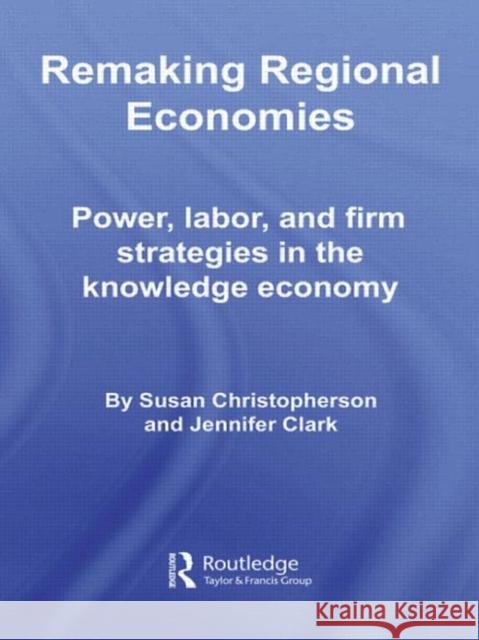Remaking Regional Economies : Power, Labor, and Firm Strategies in the Knowledge Economy » książka
Remaking Regional Economies : Power, Labor, and Firm Strategies in the Knowledge Economy
ISBN-13: 9780415357432 / Angielski / Twarda / 2007 / 190 str.
Remaking Regional Economies : Power, Labor, and Firm Strategies in the Knowledge Economy
ISBN-13: 9780415357432 / Angielski / Twarda / 2007 / 190 str.
(netto: 725,94 VAT: 5%)
Najniższa cena z 30 dni: 705,23 zł
ok. 16-18 dni roboczych.
Darmowa dostawa!
Regional autonomy in the global economy is a myth: regional economies and regional fortunes are shaped by a transational firm agenda to drive down costs while accessing skilled, flexible labor in and across regions.
Since the early 1980s, the region has been central to thinking about the emerging character of the global economy. In fields as diverse as business management, industrial relations, economic geography, sociology, and planning, the regional scale has emerged as an organizing concept for interpretations of economic change.
This book is both a critique of the "new regionalism" and a return to the "regional question," including all of its concerns with equity and uneven development. It will challenge researchers and students to consider the region as a central scale of action in the global economy. At the core of the book are case studies of two industries that rely on skilled, innovative, and flexible workers - the optics and imaging industry and the film and television industry. Combined with this is a discussion of the regions that constitute their production centers. The authors’ intensive research on photonics and entertainment media firms, both large and small, leads them to question some basic assumptions behind the new regionalism and to develop an alternative framework for understanding regional economic development policy. Finally, there is a re-examination of what the regional question means for the concept of the learning region.
This book draws on the rich contemporary literature on the region but also addresses theoretical questions that preceded "the new regionalism." It will contribute to teaching and research in a range of social science disciplines.











